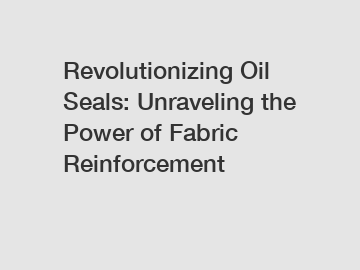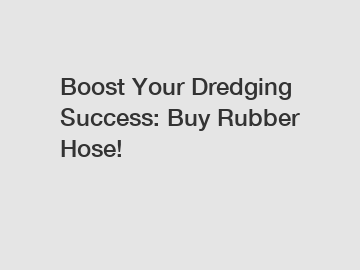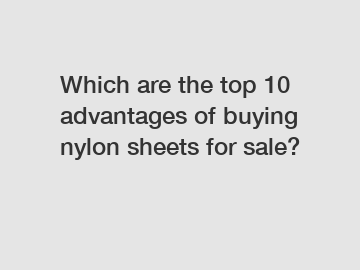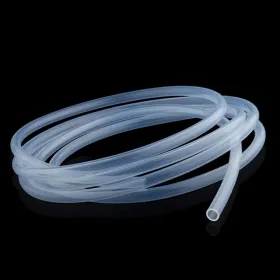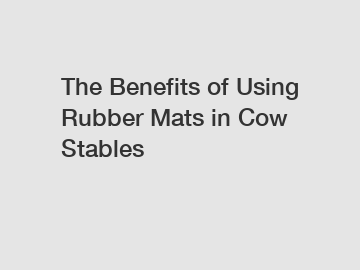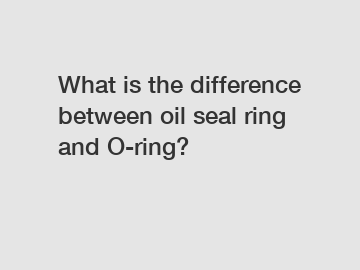Which rubber sheet is best?
Which Rubber Sheet is Best?
Rubber sheets are widely used in various industries due to their versatility and durability. From automotive to construction, these sheets play a crucial role in providing insulation, protection, and sealing. However, with different types and variations available, it can be challenging to determine which rubber sheet is the best for a specific application. In this article, we will explore the different types of rubber sheets and their advantages, helping you make an informed decision.
Natural Rubber Sheets.
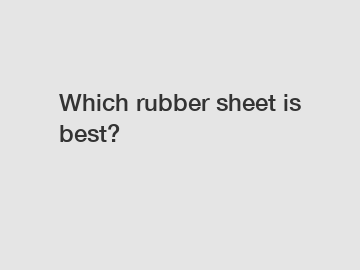
Natural rubber sheets, derived from latex, offer excellent flexibility and resistance to abrasion. They are known for their exceptional tensile strength, tear resistance, and elongation properties. These sheets are suitable for applications that require high durability and are often used in gaskets, seals, and conveyor belts. Moreover, natural rubber sheets can withstand exposure to outdoor elements, making them suitable for outdoor applications.
Neoprene Rubber Sheets.
Neoprene rubber sheets are popular due to their resistance to oil, chemicals, and extreme weather conditions. They provide excellent thermal insulation properties, making them suitable for thermal seals and gaskets. Neoprene sheets are often used in industrial settings that deal with oils, fuels, and greases. Additionally, these sheets offer good resistance to UV rays, ozone, and weathering, making them ideal for outdoor applications.
EPDM Rubber Sheets.
EPDM (Ethylene Propylene Diene Monomer) rubber sheets are known for their exceptional resistance to heat, ozone, and weathering. They offer excellent resistance to water, steam, and alkaline solutions, making them ideal for applications involving moisture or water exposure. EPDM sheets are commonly used in roofing systems, automotive seals, and electrical insulation. They also provide good resistance to UV rays, making them suitable for outdoor applications.
Silicone Rubber Sheets.
Silicone rubber sheets are known for their excellent temperature resistance, ranging from extremely low to extremely high temperatures. They offer good electrical insulation properties and are widely used in electrical and electronic applications. Additionally, silicone sheets have excellent resistance to weathering, UV rays, and ozone. They are commonly used in food and medical industries due to their non-toxic and odorless properties.
Closed-cell Rubber Sheets.
Explore more:What is fluorine rubber used for?
What is the introduction of polystyrene?
What does NBR mean in oil seal?
Is HDPE Gas Line the Revolutionary Solution for Environmentally-Friendly Energy Distribution?
What are the elements of Teflon?
Does HDPE pipe leach chemicals?
Which Innovative Materials Can Replace OEM UHMW-PE Fender Panels and Sills for Enhanced Vehicle Protection and Fuel Efficiency?
Closed-cell rubber sheets have a unique structure that provides excellent sealing properties. Due to their closed-cell structure, these sheets are resistant to the passage of air, water, and gases. They are commonly used in applications that require excellent insulation, such as HVAC systems, refrigeration units, and soundproofing materials.
Choosing the Right Rubber Sheet.
To determine which rubber sheet is best for your application, consider the following factors:
1. Temperature Range: Assess the temperature conditions the rubber sheet will be exposed to and ensure it can withstand those extremes.
2. Chemical Resistance: Identify the chemicals or substances the sheet will come in contact with and select a sheet that offers resistance to those substances.
3. Physical Properties: Determine the desired physical properties such as flexibility, tensile strength, elongation, and tear resistance required for your specific application.
4. Environmental Conditions: Consider the environmental conditions, such as outdoor exposure, UV rays, and weathering, to ensure the selected rubber sheet can withstand and perform well in those conditions.
By carefully evaluating these factors and understanding the properties of different rubber sheets, you can make an informed decision to choose the best rubber sheet for your application.
Conclusion.
In conclusion, selecting the best rubber sheet depends on the specific requirements of your application. Natural rubber sheets, neoprene rubber sheets, EPDM rubber sheets, silicone rubber sheets, and closed-cell rubber sheets offer different properties and advantages. By considering factors such as temperature range, chemical resistance, physical properties, and environmental conditions, you can make an informed decision. If you need further assistance or have any questions, please do not hesitate to contact us.
Contact Us: [Include relevant contact information].
For more information, please visit Diamond Hammer Top Cow Rubber Mat, China Fkm Rubber Sheet, rubber mat for cow.
Explore more:What is the process of making rubber sheets?
Buy TG Oil Seal: Expert Guide for a Leak-Free Solution!
Revolutionizing Mining with HDPE Tailing Pipeline
PE vs PET Protective Film, which is better?
Ultimate Guide to Dredging with Rubber Hoses
Discover UHMW: The Ultimate Guide to This Versatile Polymer
What are the benefits of Viton rubber?



